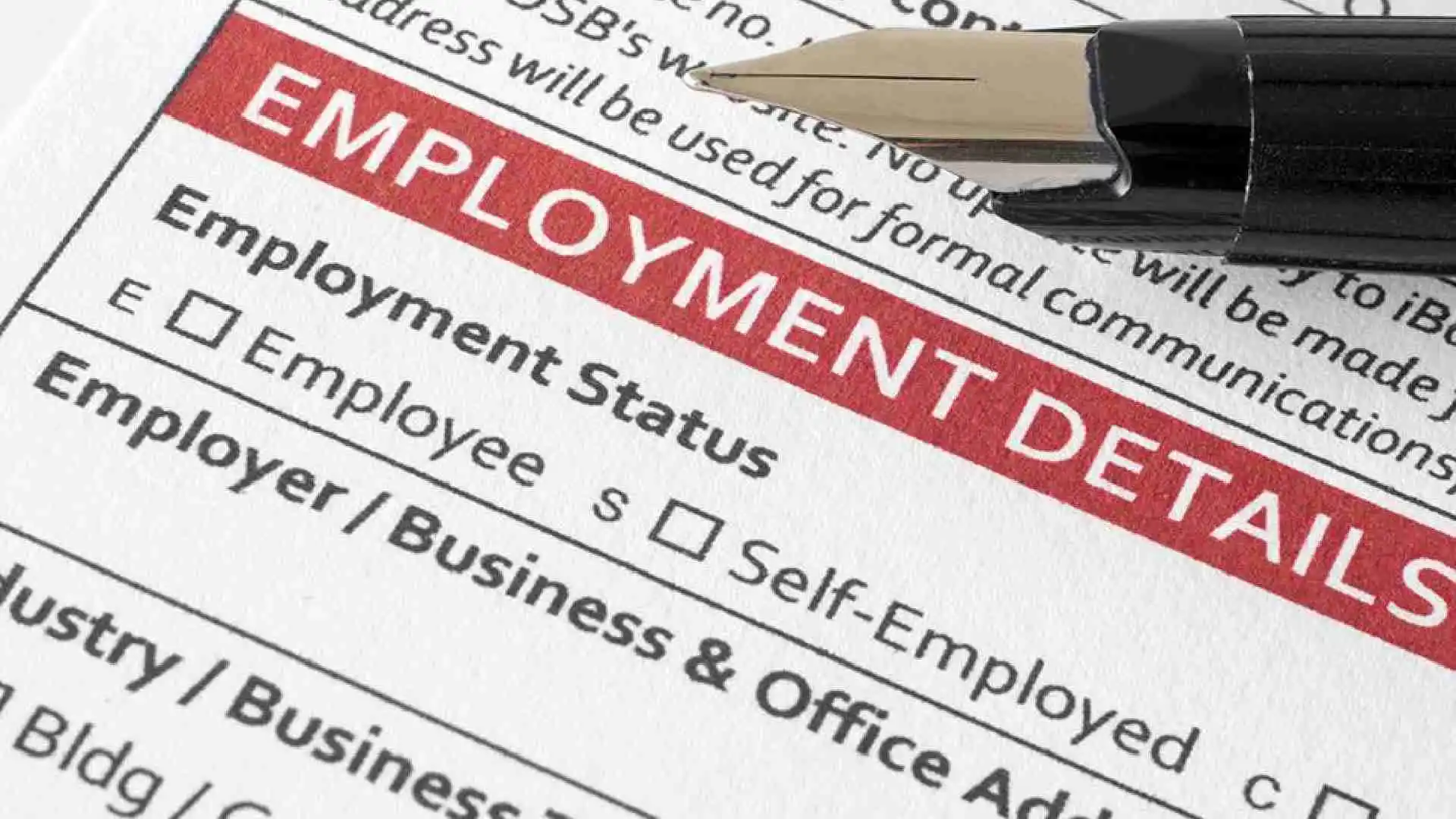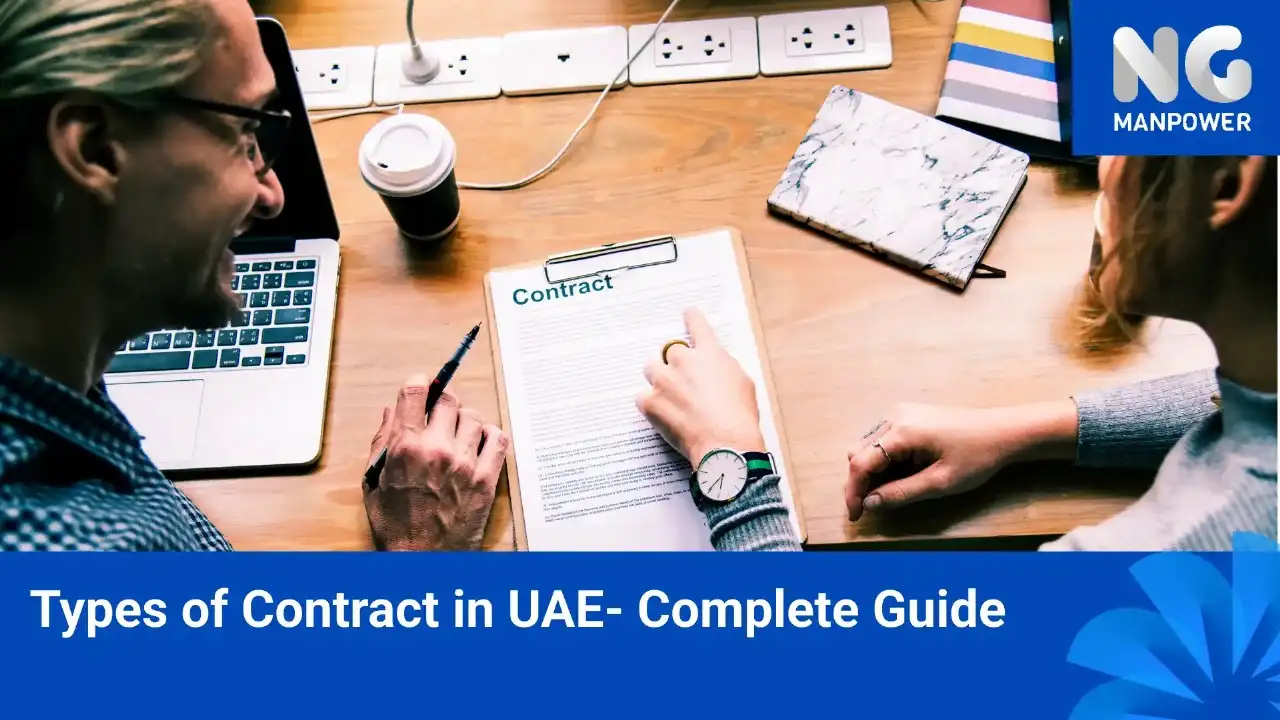Embarking on a career journey in Dubai? Before moving forward, it is mandatory to understand various aspects, including your employment status. Applicant’s employment status dictates not only their professional realm role but also influences legal protections, benefits, and overall job security.
In this article, we will discuss the landscape of employment status, Making it understandable and providing clarity on the different classifications. From part-time employment to full-time roles and contract agreements, each type of job have different implications for individuals in the workforce in which they are serving.
The Significance of Knowing Employment Status
Understanding employment status has a great significance in navigating the professional world landscape. This guide is helpful for both employer’s and employee’s work relationships which serves as a compass.
The employment status significance is based on responsibilities and expectations. For full-time employees, the long-term commitment is accompanied by comprehensive benefits and a high level of job security. In comparison to this, contractual or part-time roles may offer more flexibility but under different considerations.
A clear understanding will benefit employers from their workforce’s employment status. It not only helps in resource allocation, and workforce planning but also in compliance with labor laws. It recognizes the distinctions between statuses that enable organizations to tailor their approach that is linked to employee management, that fosters a conducive and legally compliant work environment.
Societal implications also emerge including policies for labor laws and social security systems are often tailored based on prevailing employment trends. A collective employment status awareness contributes to informed equitable employment practices and policy-making.
In general, discovering the employment status unveils its impact on both the broader professional landscape and individuals. This knowledge helps individuals make informed career decisions, on the other hand, employers can foster a work environment that corresponds that meets their workforce’s diverse needs with legal standards. The journey of employment status is a journey toward clarity in the ever-evolving realm of work and empowerment.
Employment Status in the UAE vs Other Countries
Employment status is different between the UAE and other countries, reflecting the regulatory frameworks and unique labor landscape that govern the workforce. It is crucial to understand these key distinctions for both employees and employers that navigates the arena of global employment.
In the UAE employment status, it is often linked to the type of visa and labor contract an individual holds. Common classifications include full-time, part-time, and temporary employment. Full-time employees in UAE typically enjoy comprehensive benefits, job security, and adherence to the country’s labor laws. Part-time and temporary roles offer flexibility but may have different entitlements and protections.
Comparatively, employment status classifications in other countries may vary. For instance, European nations often have robust social welfare systems, influencing employment structures. Contractual engagements include or fixed-term or temporary contracts, that may differ in terms of legal protections and benefits.
Additionally, the sponsorship system in the UAE ties an employment status of an individual to their visa. It makes it unique compared to countries with different immigration and labor structures. This system ensures compliance with local regulations but also requires a thoughtful approach to mobility and career transitions.
Moreover, some countries have distinct categories like “at-will employment,” prevalent in the United States. According to this, either the employee or employer can terminate the relationship without any reason. These details are essential to understand for both expatriates and businesses operating in various jurisdictions.
As you can see, disparities in UAE employment status and other countries reflect the diverse global approaches to workforce management. These differences demand a detailed understanding of immigration regulations, local labor laws, and cultural norms, ensuring both employers and employees can effectively take part in the interconnected and dynamic global job market.
Tax Obligations
It is crucial to understand the tax obligations associated with different UAE employment statuses.
Here is a comprehensive overview:
- Full-Time Employment: The employees who are full-time in the UAE are subject to income tax-free status. On the other hand, they enjoy a significant financial advantage as the country does not impose personal income taxes on salaries.
- Part-Time Employment: Same as full-time employees, part-time employees also have similar tax benefits. As part-time employees, their income is exempt from personal income taxes.
- Temporary Employment: Temporary employment or fixed-term contracts are similar in which individuals are engaged. They are also in the category of UAE’s tax-free income status during their employment period.
- Freelancers and Self-Employed Individuals: Freelancers and self-employed individuals must consider their tax obligations carefully. Personal income taxes are not applicable, they may be subject to other fees or taxes based on the nature of their business activities.
- Value Added Tax (VAT): Introduced in 2018, VAT is applicable in the UAE. The standard rate is 5% and it primarily impacts goods and services.
- Social Security Contributions: The UAE does not have a formal social security system. As per the bilateral agreements, it is required by expatriates to contribute to their home country’s social security.
- Customs Duties and Excise Tax: While not directly related to personal income, individuals should be mindful of customs duties and excise taxes on specific goods and services.
What are the types of employment status?
Understanding the various types of employment status is essential for both employees and employers. Here are the key categories:
- Full-Time Employment: Full-time employment is the most common and traditional form of work. Employees under this category typically work standard hours per week and receive full employment benefits, including health insurance, paid leave, and retirement plans.
- Part-Time Employment: Moreover, part-time employment involves working fewer hours than a full-time employee. On the other hand, part-time workers often enjoy flexibility in their schedules but may not receive the same benefits as full-time counterparts on a proportional basis.
- Temporary or Fixed-Term Employment: Temporary employment involves a specific duration or a fixed-term contract. It is common for project-based work or to cover temporary increases in workload. Temporary employees usually receive benefits for the duration of their contracts.
- Freelance or Independent Contracting: Freelancers work on a project-by-project basis, often providing services to multiple clients. They are not permanent employees and are responsible for managing their taxes, insurance, and benefits.
- Self-Employment: Self-employed individuals run their own businesses and are responsible for all aspects of their work, from acquiring clients to managing finances. This category includes entrepreneurs, consultants, and business owners.
- Zero-Hours Contracts: Zero-hours contracts offer flexibility to both employers and employees. Workers under these contracts are not guaranteed a minimum number of hours but are called in as needed. While offering flexibility, it may lack job security.
- Internship/Apprenticeship: Internships and apprenticeships provide hands-on training for individuals entering the workforce. Interns may be paid or unpaid, and apprentices typically receive training while working towards a qualification.
Understanding these types of employment status is crucial for individuals seeking work and employers structuring their workforce. Each type has its advantages and considerations, and selecting the right UAE employment status depends on many factors.
Individual workers
Dubai represents a diverse segment of the employment landscape for individual workers that encompasses a wide range of:
- Professionals
- Skilled workers, and
- Service providers.
- They must know their employment status in Dubai because it is essential for both the individuals and the organizations.
Freelancers in Dubai operate as self-employed individuals who provide services to various clients. They enjoy flexibility but are responsible for managing their
- Taxes,
- Insurance, and
- Benefits.
- The individuals often hold full-time positions, bringing specialized skills to industries such as:
- Finance,
- Technology
- Healthcare, and more.
Expatriate employment is subject to specific visa regulations.
With an influx of skilled workers, Dubai’s construction and infrastructure have reached so far including
- Technicians
- Craftsmen, and
- Laborers.
They typically have fixed-term contracts. Their employment status in Dubai is regulated by labor laws and industry standards.
The service industry in Dubai comprises:
- Hospitality
- Retail, and
- Tourism
They all heavily relied on individual workers.
Front-line staff, including:
- Waitstaff
- Retail associates, and
- Hospitality professionals
They often have full-time or part-time employment contracts, enjoying benefits as per labor regulations.
For many expatriates, Dubai is a home. It employs domestic workers such as:
- Housekeepers
- Nannies, and
- Drivers.
These workers have specific employment contracts and are protected by regulations that ensure fair treatment and working conditions.
Many individuals in Dubai venture into:
- Entrepreneurship
- Establishing small businesses or startups
- Employee Contracts
In UAE, the employment status Dubai of individuals is formalized through employee contracts. It serves as legally binding agreements between employers and employees. These contracts play a pivotal role in defining the terms and conditions of employment, safeguarding the rights and responsibilities of both parties involved.
Most employees in Dubai are subject to standard employment contracts that outline fundamental aspects such as job roles, responsibilities, working hours, compensation, and benefits. These contracts are in accordance with the labor laws of the United Arab Emirates (UAE) and provide a framework for a fair and transparent working relationship.
Dubai recognizes both limited and unlimited employment contracts. Limited contracts have a specific duration, often linked to the project or a fixed-term period. Unlimited contracts, on the other hand, have a more open-ended tenure, offering greater flexibility to both employers and employees.
Many employment contracts in Dubai include a probationary period during which both the employer and employee assess the suitability of the working relationship. This period allows for adjustments and evaluations, with clear guidelines on the process and conditions for probation termination.
How can one find out if an employee is employed?
Verifying an individual’s employment status Dubai involves several approaches, ensuring accuracy and compliance with legal regulations. To ascertain if an employee is currently employed:
- Direct Inquiry: Firstly, contacting the respective company’s human resources department is a straightforward method. Direct communication allows for confirmation of an individual’s employment status, position, and other relevant details.
- Labor Contract Verification: Individuals can request a copy of their labor contract, which includes essential employment details. This document serves as an official record and can be obtained from the employer’s HR department or the UAE Ministry of Human Resources and Emiratisation (MOHRE) website.
- Online Platforms: Moreover, the UAE government provides online platforms, such as the MOHRE website, where individuals can check their labor card status and employment details. This platform allows easy access to crucial information related to employment status and contract specifics.
- Reference Checks: Engaging in reference checks through professional networks or previous employers can offer additional insights into an individual’s employment history. Colleagues, industry contacts, or mutual connections can provide valuable information.
- Professional Services: Furthermore, some companies and agencies specialize in employment verification services. These entities can perform comprehensive background checks, confirming an individual’s current employment status, work history, and other pertinent details.
If you are interested in learning more about this and other topics, just check our insights. In addition, if you want to know more about our services, visit our contact section.






